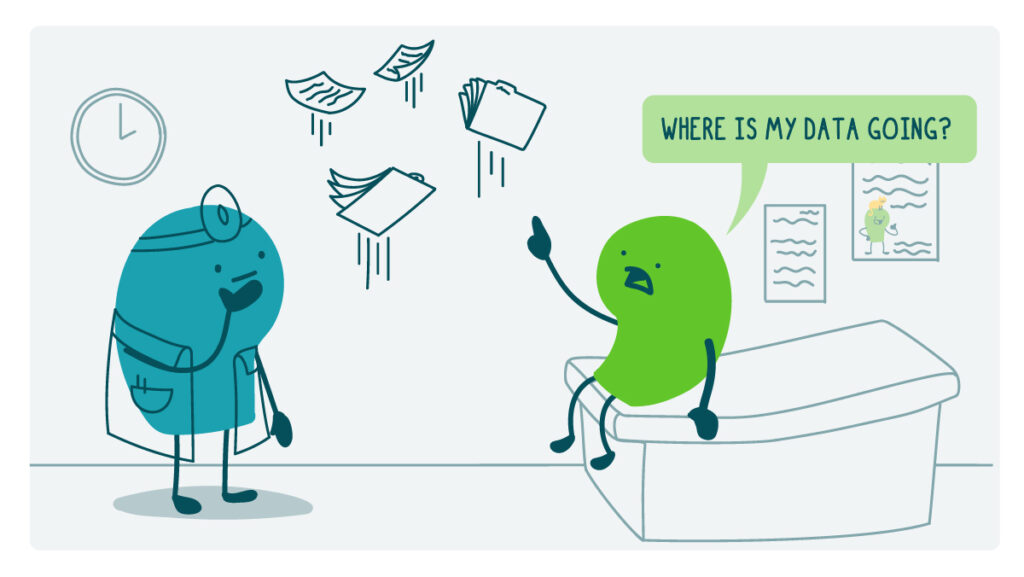
Back in April, the National Institutes of Health (NIH) shared plans to create a national “autism registry.” Since then, it seems the project has evolved — instead of a registry, NIH and Centers for Medicare & Medicaid Services (CMS) will build a “data platform” to study the causes of autism. The main data source for this platform will be the private medical records of people enrolled in Medicare and Medicaid.
Despite the shift, disability and civil rights groups are still raising privacy concerns. Considering the dark history of autism research, it’s understandable that many autistic people and their families are worried about how their data might be used. Some people are canceling doctor’s appointments to avoid generating medical records related to autism — including parents and caregivers who’d previously scheduled autism evaluations for their children. That means people may miss out on diagnostic assessments, medical care, disability accommodations, and other support they need.
So this week, we’re thinking through some thorny questions around autism and government data collection. First of all — is there really a difference between a registry and a data platform? While “registry” tends to evoke a stronger gut reaction, at the most basic level, both terms describe a collection of information. What we call this data collection effort matters less than how it’s going to affect autistic people. That’s why we wanted to explore 3 questions that get at some key concerns.
Do people get a choice? Government-run registries and databases are nothing new. In fact, there’s already a National Database for Autism Research (NDAR). But NDAR is voluntary — autistic people and their families give consent to share their data to support autism research. Government agencies, private organizations, and health care facilities run dozens of voluntary registries to study diseases and recruit participants for clinical trials.
Seven U.S. states, on the other hand, have mandatory autism registries. These collect data in different ways, usually by requiring doctors to report each diagnosis. (An eighth state, New Hampshire, repealed its registry in 2024 due to privacy concerns.)
It’s not yet clear whether the new platform, called the Autism Data Science Initiative, will ask for consent or allow people to opt out of sharing their data. But since it will use existing government data sources, it’s unlikely that people will get a choice.
How will the platform protect personal information? The Health Insurance Portability and Accountability Act (HIPAA) says doctors and health insurance plans need your consent to share your health info. But HIPAA only protects “individually identifiable information.” If they remove all your personal details first (called de-identifying the data), they can share it without your consent.
NIH says the new platform will have “rigorous privacy protections,” which would mean de-identifying the data before sharing it with researchers. Here’s the bad news: by combining data from multiple data sets, it’s sometimes possible to re-identify private medical records. This lack of a true privacy guarantee makes the third and final question even more important.
How will the government use the information? The government has framed this data platform as a tool to help researchers identify causes of autism. But autism organizations have noted that the agency didn’t involve autistic people in the planning process. Listening to the diverse perspectives of autistic people and their families is key to building trust in research — and that dialogue hasn’t happened yet. In the meantime, many are concerned that the data could be misused to support the debunked claim that vaccines cause autism, perpetuate the harmful narrative of an “autism epidemic,” or focus on finding a cure for autism instead of helping autistic people live healthier lives.
The conversation isn’t over. Doctors, autism organizations, autistic people, and their families will need to keep asking these questions as plans for this platform take shape. As health communicators, we can do our part by encouraging our audiences to insist on clear answers.
The bottom line: Plans for an autism registry or data platform raise some serious privacy concerns — and we’ll all need to keep asking questions, together.
Copy/paste to share on social (and tag us!): Wondering about the plans for a national autism registry or data platform? CommunicateHealth thinks through a few thorny questions: https://communicatehealth.com/wehearthealthliteracy/health-comm-for-the-current-moment-big-questions-about-an-autism-registry/ #HealthCommunication #HealthLiteracy #HealthComm
Browse recent posts